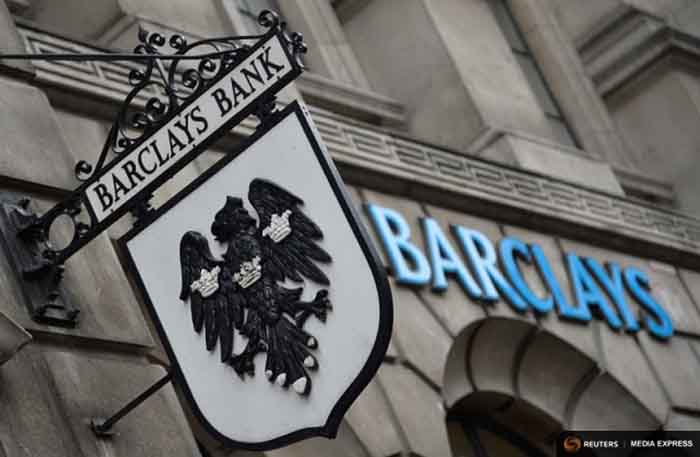While the bank’s total profits of £1.1bn were 32% ahead of last year, thanks to lower operating expenses and litigation charges, its investment bank, Barclays International, suffered over the first nine months of the year.
Its investment bank saw profit before tax fall 15% to £3.3bn, compared with £3.8bn the previous year, and recorded an 18% drop in revenues over the period.
The British bank was the worst performer of the FTSE 100 on Thursday, with shares down some 6.2% at £1.85p by mid-morning.
Viewed against competitor Lloyds’ dramatic 141% profit boost from the previous day, the results appeared even more anti-climactic.
Jes Staley, the group’s chief executive, highlighted the reporting period as a significant one for Barclays as it was “the first for many years in which we have not been in some state of restructuring”.
However, he admitted that “the third quarter was clearly a difficult one” for Barclays International. “A lack of volume and volatility in FICC (fixed income, currency and commodities) hit markets revenues hard across the industry, and we were no exception to this trend.”
White noise
Despite this, Laith Khalaf senior analyst at Hargreaves Lansdown, noted “there was a lot of noise” in the latest set of results “with one-off charges, adjustments and writedowns muddying the waters considerably”.
“This is the first time Barclays has reported since getting rid of its bad bank, but anyone who hoped this might simplify its financial reporting will be sorely disappointed,” he said.
Russ Mould, investment director at AJ Bell, said that while the investment bank’s sharp fall in profits “should not have been a surprise, given the trend seen in results from global integrated banking peers such as JP Morgan Chase, Citigroup and Bank of America, it does highlight the cyclical and volatile nature of the unit’s earnings”.
“The combination of potentially fickle markets, expensive staff and regulatory pressure mean that the investment banking arm is a low-multiple business in valuation terms and this is weighing upon the rating attributed to Barclays overall by the market.”
Barclays’ shares are currently trading at a “substantial discount” to the bank’s book value and peers RBS and Lloyds, Mould noted, likely reflecting the bank’s ongoing US investigation over the potential mis-selling of mortgage backed securities and reputational issues like Staley’s alleged attempts to uncover anonymous whistleblowers within the firm.
“But for whatever the reason, Barclays’ share price is not behaving like that of its peers to suggest that something isn’t right somewhere within the bank,” he added.
Khalaf agreed that the 20 plus separate ongoing investigations remain a daunting risk for the bank, adding that “it’s now touch and go whether the bank will break even in 2017”.
Ring-fenced restructuring
In a separate update, the bank announced it would be setting up a ring-fenced bank, Barclays Bank UK, to shield customers from the riskier activities of its investment bank, complying with post-crisis UK government reforms.
The new entity will be independent from Barclays Bank but operate alongside it. Both groups will be direct subsidiaries of parent company Barclays PLC, which will continue to be the listed holding group.







